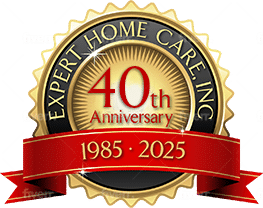Osteoporosis, a disease that thins and weakens the bones to the point where they become fragile and break easily, affects 10 million Americans. Those most affected are postmenopausal women who experience a dramatic drop in estrogen – a hormone that assists in the absorption of calcium and prevents calcium loss from the bone. Anyone with a hormone imbalance – which may include men who have been treated for prostate cancer – is also susceptible to the disease. Risk factors include race (Caucasians have a 50 – 60 percent greater risk), family history, lack of exercise, being underweight, and smoking. People who take high amounts of corticosteroids are also more likely to have brittle bones.
Bone tissue naturally refills itself in a dynamic process of restoration and formation. For those with osteoporosis, however, the loss of bone outweighs the production of new material, resulting in more bones that are more likely to fracture.
By following these tips, you can prevent and slow the development of the disease:
- Exercise and follow a healthy diet which includes vegetables, fruits, and dairy.
- Postmenopausal women and men over 70 should get 1,200 mg of calcium every day through their diet or by taking supplements. The best source of calcium are dairy products – one 8-ounce glass of milk includes 800 mg of calcium, and one slice of cheese and a single serving of yogurt both have about 200 – 300 mg of calcium.
- Postmenopausal women, as well as men over 70, should get 1,000 units of vitamin D each day. Vitamin D is found in such foods as egg yolks, cheese, fish and liver.
- All women should ask their doctor for a bone density test once they reach 50. This test determines the level of risk for broken bones and can provide useful information on the presence of osteoporosis and, if found, slow its progression.
Osteoporosis can be a painful, debilitating and deforming disease. The good news is that there are a number of things people can do to limit its progression and even reverse the process.
If you have an elderly loved one, New Jersey home health services like Expert Home Care can provide daily supervision of nutrition, vitamin and mineral intake and provide medication reminders.
- NJ Home Health Care Client Bill of Rights - March 12, 2019
- Senior Home Care Preparation For New Jersey Families - December 17, 2018
- Elder Abuse More Common Than Thought - December 10, 2018

